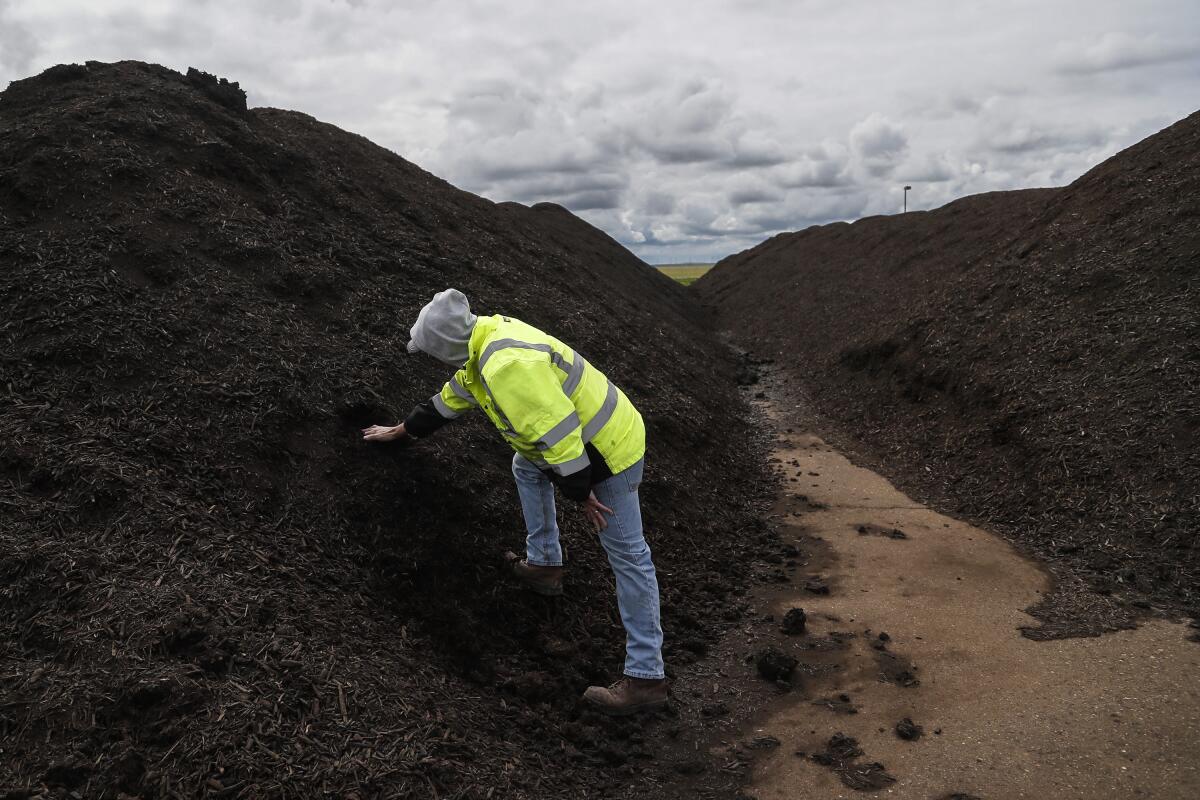Letters to the Editor: Why California pausing its composting rules would send a bad message

- Share via
To the editor: I support your editorial on keeping the composting requirements in Senate Bill 1383, a state law passed in 2016.
I also echo CalRecycle Director Rachel Machi Wagoner’s comment that pausing the program would be sending the wrong message to both the public and the organic recycling industry. Municipalities have had six years to put their plans in place, and some have taken real action.
Siting, permitting and building a compost facility in California is at minimum a five-year process. The state should find better ways for agencies to streamline their permitting processes, which would bring more facilities online faster and create more composting capacity.
For those municipalities that sat by the wayside, they should be mandated to provide an action plan on how they will tackle this issue. Yes, municipalities need additional funding to move faster. This would be the new carrot, but you still need to keep the stick in place.
California has always been the leader in environmental programs and combating climate change. Don’t give up on SB 1383. Retool it and make it better.
Frank Franciosi, Raleigh, N.C.
The writer is executive director of the US Composting Council.
..
To the editor: Thank you for the informative editorial on organic recycling. As a backyard composter, I’ve struggled with the “why” of the new L.A. city rules on organic waste, and your editorial helped.
I struggle, however, with one aspect of the city rules. Collecting organic material in a plastic bucket creates a huge mess that requires lots of precious water for cleaning.
I understand that (most) plastic bags don’t decompose in the composting process, but last week I found bags at Costco that were marked as certified for home composting. If Los Angeles could better explain the “why” of its rules and allow home compostable bags, then those of us who want to make a difference would be more likely to be able to do so.
Steve Siegel, Valley Village




